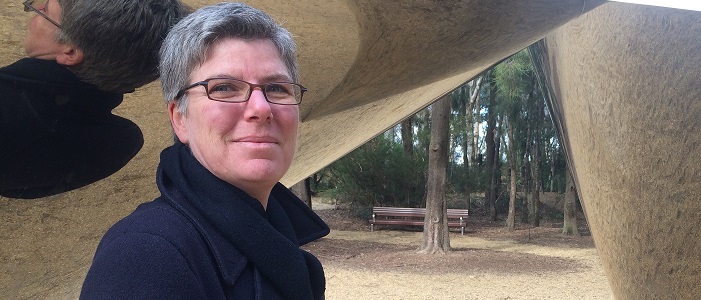News
3D printing bone tissue
Jun 28 2022
ARC Centre of Excellence for Electromaterials Science (ACES) Early Career Researcher Dr Eliza Goddard is exploring the impact of emerging bionic medical technologies on selfhood and social relations.

Dr Goddard is a member of the ACES Ethics, Policy and Public Engagement theme based at the University of New South Wales under the direction of ACES Chief Investigator Professor Susan Dodds.
Dr Goddard was awarded her PhD from the University of Tasmania in 2015. Her thesis, ‘The Bionic Self: Neural Implants and Threats to Identity’, explored the impacts of neural implants on personal identity.
In 2015 Dr Goddard accepted a research fellow position in the ethics, policy and public engagement stream of ACES, exploring the impacts of emerging bionic medical technologies on selfhood and social relations.
“My background is philosophy and I was looking for an applied problem and I was particularly keen to make my research matter,” Dr Goddard said.
Her research uses work in ethics, moral psychology, feminist theory and phenomenology to explore questions related to the impacts of neural implants, and emerging medical technologies, on selfhood and social relations.
Despite knowing nothing about bionics, Dr Goddard was interested in being involved with the ethics theme that had been established at ACES and the role description – exploring the social and ethical implications of bionics.
“I jumped in the deep end and spent a lot of time meeting the people who were making the devices – the researchers and engineers as well as the clinicians who were fitting these types of devices. I was looking at things like the Cochlear ear implant, deep vein stimulation devices and the epilepsy prediction device that is being worked on at St Vincents Hospital.”
Dr Goddard’s research topics include emerging medical technologies, personal identity and responsibilities of manufacturers, understandings of disability, enhancement, and personalised medicine, and the role of first-person phenomenological accounts in neuroethics.
“My focus is on making sense of how people feel following the implant of the device.
“Often people will say ‘I feel differently about myself’, ‘my sense of self has changed’ or even their partner might say ‘he’s a different person’.
“Those kinds of claims are often interpreted as threats to identity so my whole aim was to try and make sense of what that was.”
Dr Goddard’s research topics include emerging medical technologies, personal identity and responsibilities of manufacturers, understandings of disability, enhancement, and personalised medicine, and the role of first-person phenomenological accounts in neuroethics.













